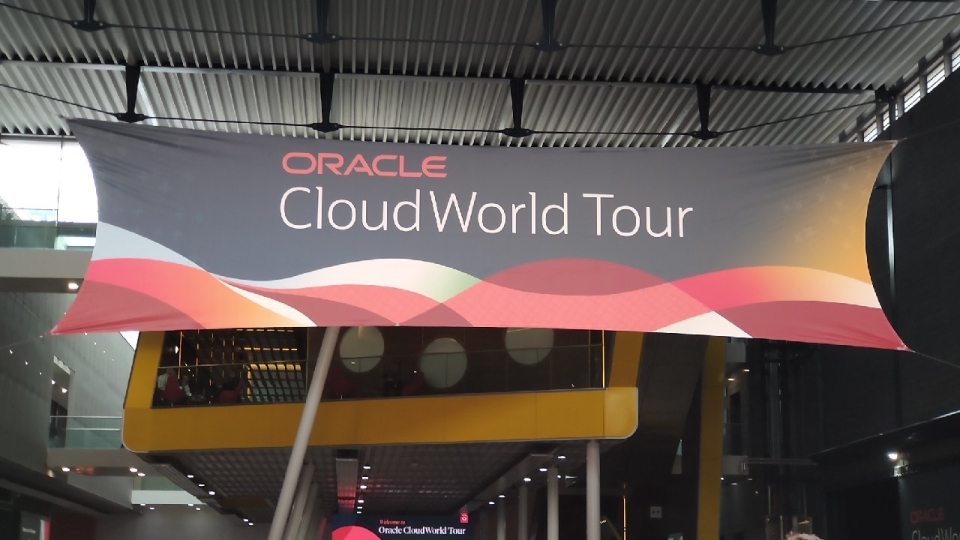
Oracle is scaling up its services play through partners around its expanding product portfolio, not least as a result of increasing demand for AI services.
At today’s Oracle CloudWorld event for customers and partners at London’s ExCel centre in Docklands, thousands of attendees heard how Oracle was squaring an ongoing predicament. How does a leading software provider meet the needs of some customers stuck on using legacy systems (or even happy to use them), while trying to move many others into newer database, ERP, CRM, human capital management (HCM), supply chain, HR and cloud systems?
Like most other technology conferences these days, the perfumed smell of AI stuck around like a conceivable business opportunity, but with the proviso that interested players had to act, and quickly.
Doug Kehring, EVP, corporate operations at Oracle, told the crowd: “AI’s been around since the 1950s, but ChatGPT has obviously accelerated things. Although some companies have perhaps been over creative with their AI branding – Einstein (Salesforce), Bard (Google – but now renamed Gemini), and what’s a Copilot (Microsoft)?
“We simply went for Oracle AI, and have naturally embedded it across our entire business. Leading tech plus enterprise grade AI equals best automation. But technology by itself is not enough.”
He then went on to push the evolving Oracle Customer Success Services (Oracle CSS) effort. “Customers have said the Oracle technology stack has been difficult to manage,” hence the Oracle CSS initiative in partnership with system integrators, managed service providers and other partners. Customers now knew they wouldn’t just be sold a product and left wondering how they could get the best out of it, he said.
Oracle itself has 13,000 certified professionals operating across 105 countries to help customers cope with its changing product stack, but Kehring stressed the need for partners to get involved in the company’s way of doing things properly.
While many partners may well have to work in sync with the Oracle sales team in connection with the deals they strike with their end customers, he said partners were very much involved with the planning, implementation, innovation and operations cycle that has to go round and around to deliver customer success.
“The best automation plus the best customer services equals best value,” he said.
At the event, IT Europa sat down with UK Oracle partner Namos, led by CEO Chris Mason, to see what he thought about Oracle’s efforts.
The company was founded in 2012, and now has 150 Oracle specialists on its books, and it doesn’t support anything else but Oracle. What does Namos say when a customer asks for support for software other than from Oracle?
“Some ask us about other vendors, but we don’t handle them, while others want just an Oracle specialist. We focus on what we do best,” said Mason.
You arguably don’t usually ask a builder to do your electrics and plumbing, not unless you want potential fires and leaks.
So is it worth concentrating on Oracle as a partner? “More Oracle sales are now definitely going through partners,” he said, and “we are now seeing OCI (Oracle Cloud Infrastructure) as a big opportunity to sell more services”.
Mason added: “We had a partners meeting with Oracle last night, and we are pleased with the product roadmap they presented. We’re confident that we can turn more one-off deployment customers into multi-year managed service ones.”
As for Oracle product stack complexity, he said Oracle was now “much easier to work with”, partly connected with “changes in the way Oracle sales teams work” [with partners], and enhancements to partner programmes too.
So that’s one happy Oracle channel player. More from Oracle CloudWorld to follow...


